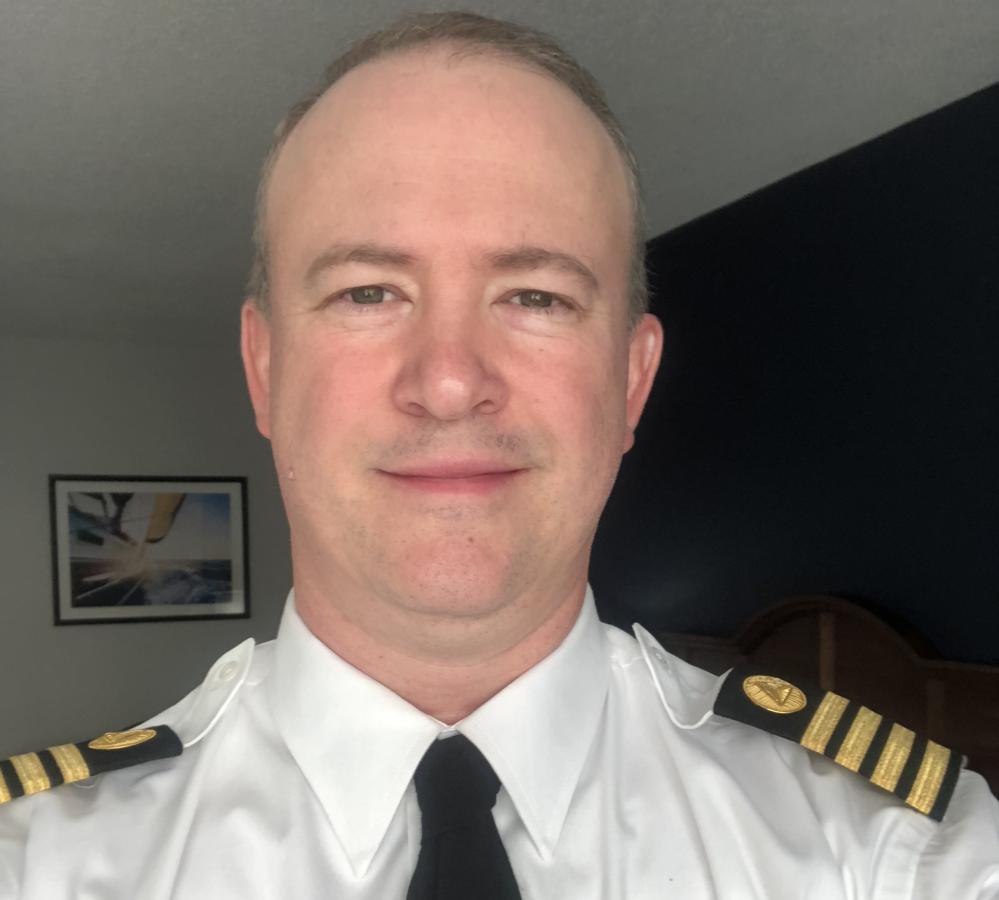
The NOAA Commissioned Officer Corps (NOAA Corps) is one of the nation’s eight uniformed services and NOAA Corps officers are an integral part of NOAA. With approximately 330 officers and growing, the NOAA Corps supports nearly all of NOAA’s programs and missions. The combination of commissioned service and scientific expertise makes these officers uniquely capable of leading some of NOAA’s most important initiatives. Meet NOAA Corps officer Captain Jesse Stark.
Where did you grow up?
I grew up in Port Angeles, Washington, on the Olympic Peninsula.
Where did you go to school and in what subject did you get your degree(s)?
I went to my hometown community college, Peninsula College, where I earned an Associate of Applied Science in fisheries technology and an associates degree. I then took a year off to save money for finishing a bachelors, and then completed that in Missoula, Montana, at the University of Montana where I earned a Bachelor of Science in resource conservation.
What inspired you to become a NOAA Corps officer?
Growing up on the water, I was an avid fisherman, beachcomber, crabber, etc. Soon after I got my driver’s license, I was walking the docks of the local marina looking for work in the fishing industry. I was quickly hired as a deckhand on a sportfishing charter which I did for a year, then spent a year commercial fishing before getting hired on the local car and passenger ferry that runs to Canada. Doing this throughout high school and college, I fell in love with the sea and the maritime industry and was working towards a Merchant Marine Deck Officer license.
Upon graduation from college, I was faced with a fork in the road; continue in the maritime industry or seek employment in my degree field. It was again while walking the waterfront in my hometown that I stumbled upon NOAA Ship Rainier and was quickly offered a position as an able-bodied (AB) seaman, as AB’s were in as much of a demand as they are now.
After spending a field season in Southeast Alaska aboard Rainier and learning about the NOAA Corps, I found the perfect fit for what I thought was going to be a difficult decision of becoming a ship’s deck officer or working in a natural resource related field. I was fortunate enough to find a career where I could do both and achieve my life and professional goals.
What do you do as a NOAA Corps officer?
I have just assumed command of NOAA’s marine operations, which operates our 15 research ships, three primary marine centers, and a handful of marine support facilities and port offices all over the U.S., including Alaska and Hawaii. As director, I’ll direct the office that provides support of the safety, administrative, operational, logistical, and engineering and maintenance branches that administer those activities to the fleet.
What was one of your favorite missions or experiences?
The ones I remember most were times when everyone had to work together to complete a goal where if one group didn’t pull their weight, the objective would not be accomplished. One in particular was aboard NOAA Ship Bell M. Shimada when we had two research groups on board, one operating a remotely operated vehicle (ROV), the other an autonomous underwater vehicle (AUV). At completion of an AUV deployment, the vehicle would not surface and was stuck on the bottom in roughly 200 fathoms of water. We had to wake the ROV team, who had been operating at night and sleeping during the day, to deploy the ROV to “bump” the AUV to get it to re-surface. This required positioning the ship and holding station in a precise location while the ship's crew and two scientific operating groups worked together to deploy the ROV then find and recover the AUV once it surfaced.
Bringing NOAA’s first new-build in several years, NOAA Ship Oscar Dyson from bare steel in the shipyard through the Panama Canal to Kodiak, Alaska, and online as an operational ship in 2005 then taking Command of her ten years later and conducting two 28-day research projects in the ice is another of my most memorable and rewarding experiences.
Spending several months in Puerto Rico for the response to hurricanes Irma and Maria was a wonderful experience and a great opportunity to see a different culture and provide aid after a very devastating and traumatic event.
What advice would you give to someone who wants to be a NOAA Corps officer?
Ensure you have a well-rounded background and work experience to go along with your college degree prior to application. Find ways to highlight your breadth of experience to set you apart from the other applicants. Be sure you are committed to being away from life ashore and have the support of family and friends who understand the service commitment. Don’t expect every day to be a routine, eight-hour day. It is not a 9-5, Monday-Friday job, often even during land assignments, so being able to weather the difficult and long days is something that you need to be prepared for. The human element experience is a large part of this career that can be the most rewarding and also the most challenging. Finding a way to work with many different people from many different backgrounds and perspectives is going to put you in a position to excel and immerse yourself into teams as a valuable asset. Knowing the role of how each person and element of a mission interacts and contributes to the overall success of whatever you’re trying to accomplish isn’t always readily apparent, but is crucial to this job.
What do you like to do outside of work?
Anything outdoors; hunting, fishing, crabbing, camping, mountain biking, and hiking. The majority of my free time when I’m not at work is attending my two kids’ sporting events and coaching at least one of their teams during each season.

